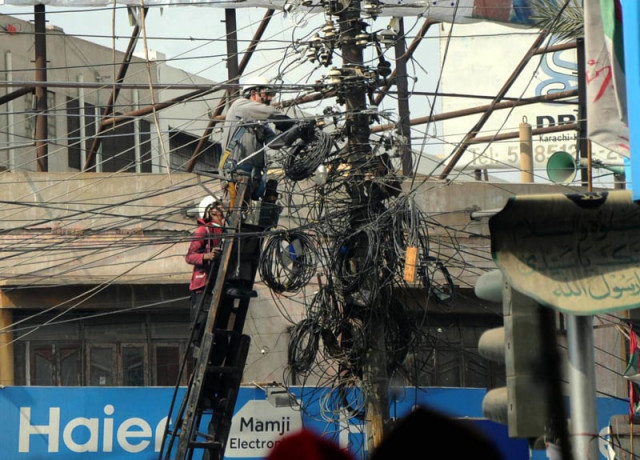Circular debt
Circular debt of Rs300b has piled up despite massive fall in international crude oil price

Towards the end of IMF's three-year bailout, it was revealed that the plan had been shelved, no doubt due to the failure to restructure and reform DISCOs. PHOTO: EXPRESS
Given these developments, it is a shame that circular debt has been on the rise. It basically means that no matter what the cost of production or the amount of subsidies, there are some consumers who will either not pay what they owe or that inefficient power companies will find a way to increase their receivables. A closer analysis reveals that provincial governments are as much to blame as those consumers who are involved in power theft. The entire system is complex and corrupt. Hence, there was never any doubt that the power sector needed structural reforms. It needed to be made efficient. One hope was the IMF bailout programme through which Pakistan promised reforms and privatisation of power distribution companies. Towards the end of the three-year bailout, however, it was revealed that the plan had been shelved, no doubt due to the failure to restructure and reform DISCOs. There are several questions that one can ask here, but there will be very few satisfactory replies. In haste, the PML-N cleared Rs480 billion in 2013, and there are question marks there as well. But, as is the case in government affairs, there are very few answers that can satisfy the public.
Published in The Express Tribune, September 4th, 2016.
Like Opinion & Editorial on Facebook, follow @ETOpEd on Twitter to receive all updates on all our daily pieces.















COMMENTS
Comments are moderated and generally will be posted if they are on-topic and not abusive.
For more information, please see our Comments FAQ